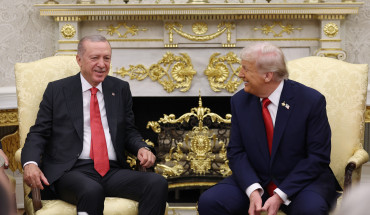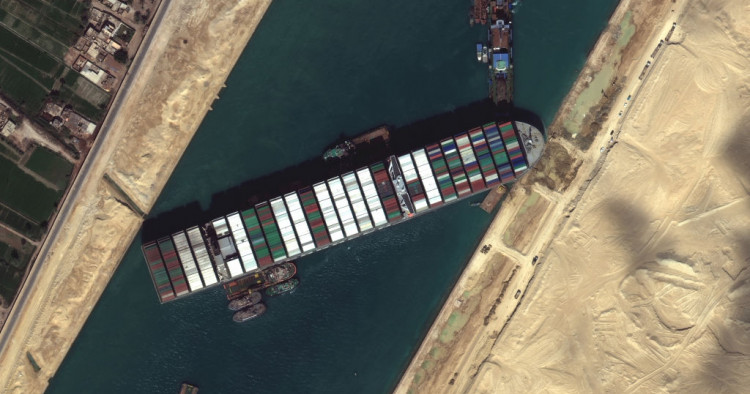Contents:
- Egypt: Misfortunes never come singly
- Suez Canal-QAnon nexus demonstrates durability of conspiracy theorizing
- Foreign Minister Wang’s Middle East tour highlights China’s growing regional role
- The US and Iraq prepare for the next round of the Strategic Dialogue
- What is Iran seeking from an MOU with China?
- The EU’s transactional approach to Turkey
- Cross-border Syria aid in the spotlight at the UN Security Council
- The cost of not inviting Pakistan to Biden’s climate summit
Egypt: Misfortunes never come singly
Mirette F. Mabrouk
Senior Fellow, Director of the Egypt program
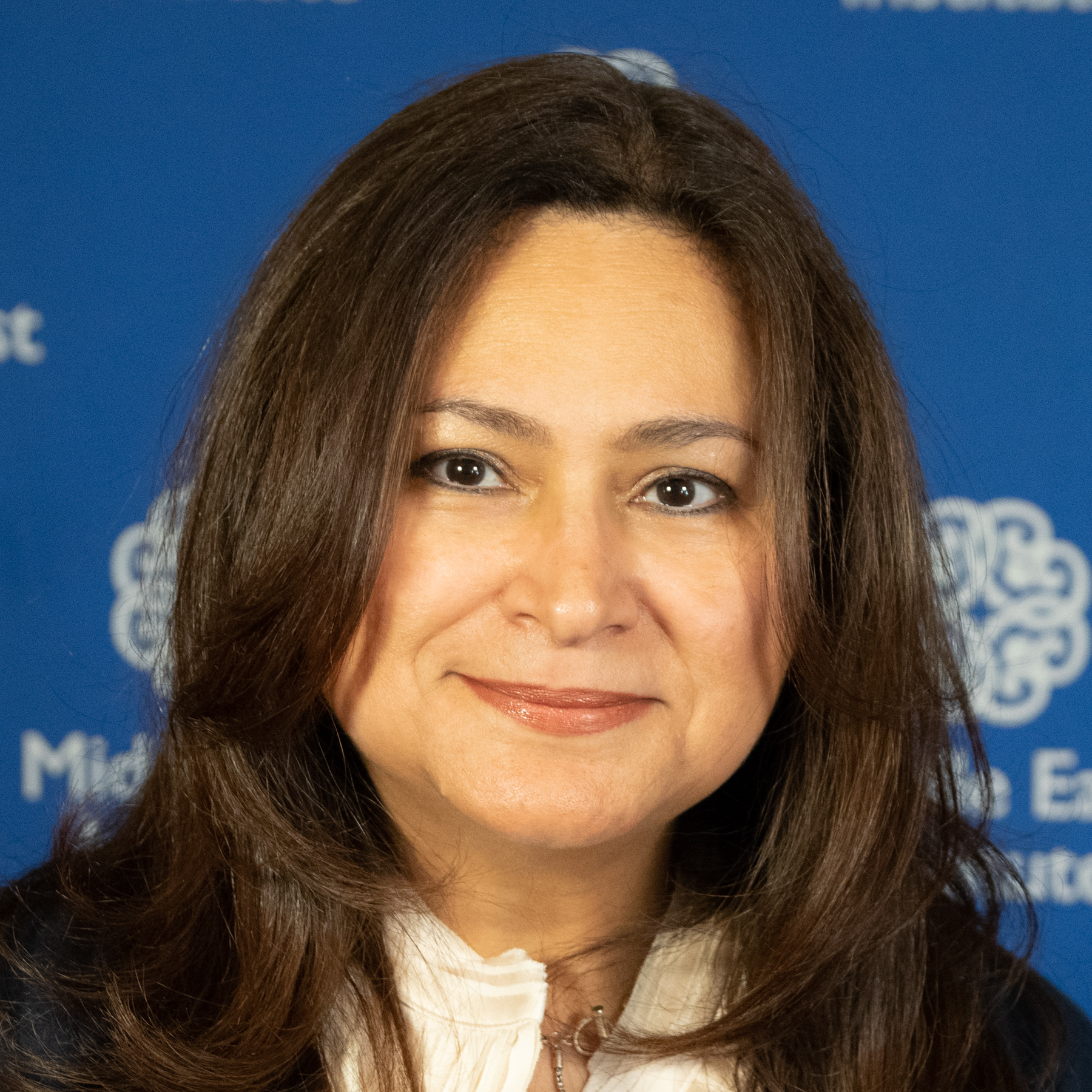
There’s a proverb in Egyptian colloquial Arabic that translates loosely as “You can withstand one knock to the head, but two is difficult.” Last week, Egypt had to struggle with two major incidents, one of them in an extremely public manner.
The second one, the grounding of a mega-tanker, the Japanese-owned Ever Given, in the Suez Canal, had a relatively happy ending, as the ship was dug out and tugged free by Monday afternoon Cairo time, following round-the-clock efforts by Egyptians alongside Japanese and Dutch consultants. The crisis has consumed world attention for the past week. The ship, which would be roughly the size of the Empire State Building if it were stood up on end, had somehow jammed diagonally across the Canal like a cork, backing up traffic behind it. That resolving the situation only took six days was a blessing compared to the weeks that it might have taken if the ship had had to be unloaded. It would be difficult to overestimate the magnitude of the possible damage. The Suez Canal is one of the world’s most essential maritime arteries and possibly the one with the highest visibility. A staggering 12% of the world’s trade passes through it. As it was, the consequences were significant enough: the blockage cost an estimated $6-10 billion per day. Syria had to start rationing its fuel consumption. Many ships had to be rerouted around the Cape of Good Hope — a journey that is dangerous, 5,500 miles and up to 10 days longer, and requires a hefty $26,000 per day extra in fuel costs. As of Sunday evening, 369 ships were still backed up behind the Ever Given, among them 25 oil tankers, and for Egypt, the damages are estimated at around $16 million a day that the country can’t spare.
Unfortunate as the ship grounding was, however, it is now on the road to a resolution. The other incident that took place last week involves issues that have led to recurring tragedies with no firm resolution in sight.
On March 26 two trains collided in what has become a wearyingly familiar scene on Egypt’s railroads. The accidents rarely happen on the more affluent first- and second-class trains, but rather on the third-class commuter trains that traverse the county. In this case, apparently, a conductor pulled an emergency brake, bringing the train to a screeching halt, where it was plowed into by another approaching train. The death toll was 19 (amended from an earlier 36 that was apparently taken on the spot by civilian rescuers and passersby) and 185 injured. However, the following day, the transport minister, Maj. Gen. Kamel el-Wazir, acknowledged that a major factor in the accident was an instruction given to drivers by the ministry; in order to meet schedules, the minister had given instructions for the partial suspension of Automatic Train Control (ATC), an emergency safety mechanism that allows control towers to automatically halt a train if something happens. ATC had gone into hyperuse after a crash at Cairo’s Ramses Station last year by a driver who had turned it off, resulting in 13 injuries and a prison sentence for the driver. According to Mada Masr, this led drivers to rely heavily on the ATC, “causing major trains delays across the country,” especially coming in and out of Cairo’s Ramses Station. Newspapers at the time cited drivers who explained that malfunctions in the signaling devices along railway lines mean that when the ATC system is used, trains stop repeatedly, so they got used to turning it off to avoid major delays. El-Wazir stepped in at the time to resolve the delays. The minister then said he would no longer “tolerate bloodshed” by working without ATC and that the technology slowed down train speeds to 8 km per hour and, if implemented across Egypt’s railways, would result in an increase in travel times of up to 25%.
Presenting commuters with a choice of arriving slowly or not at all leaves much to be desired. Nor, in light of the minister’s remarks that “those responsible would be punished” does it appear to make sense to punish railway employees for following instructions they’d been given by the ministry. The railway system is in dire need of an overhaul. Because it is a vast and expensive undertaking it appears to have been consistently shunted to the side in favor of more manageable or glamorous projects, like new cities or motorways. However, el-Wazir has said that EGP 225 billion has been allocated to developing the railways “to prevent accidents.” It remains to be seen whether this plan will actually come to fruition.
Follow on Twitter: @mmabrouk
Suez Canal-QAnon nexus demonstrates durability of conspiracy theorizing
Michael Sexton
Fellow and Director of MEI's Cyber Program

Amid a sandstorm’s high winds and low visibility, the Ever Given, a cargo ship roughly the length of the Empire State Building, became lodged in Egypt’s Suez Canal last week, bringing one of the world’s most critical shipping corridors to a halt, destabilizing commodities markets, and inspiring many memes relishing the somewhat comical quagmire. Stranger even than the reality is the fanciful yarn that the QAnon community has spun around the snafu.
QAnon, a sprawling conspiracy theory and community that believes the U.S. government is beholden to a cabal of Satan-worshipping cannibalistic pedophiles, connects the ship to its conspiracy on the grounds that its parent company — Evergreen Marine Corp. — shares a name with Hillary Rodham Clinton’s Secret Service codename (“Evergreen”) and the ship’s call sign, H3RC, has her initials. QAnon followers evidently suspect that the 220,000-ton ship is part of the purported child trafficking operation. Although the absurd conspiracy theory has been thoroughly debunked and repeatedly failed to accurately predict current events, it still carries water with a significant percentage of American adults.
The nexus of the Ever Given and QAnon is an emblematic case study in how cognitive biases and other deeply rooted psychological mechanisms make conspiracy theories durable. Humans and other animals are psychologically primed to suspect the involvement of intelligent agency in observed events that may be explained otherwise — in this case, suspecting the ship was stopped not by a naturally occurring sandstorm, but by a rescue operation. Animal brains are also wired to infer patterns from what are often coincidences, such as a shipping company and a Secret Service codename. These mental habits evolved for survival in the wild, not necessarily for logical reasoning.
Tenacity is not a unique attribute of QAnon, but rather is inherent to practically all conspiracy theories. Confirmation bias — the tendency to overvalue confirmative evidence and disregard conflicting evidence — is not even unique to conspiracy theories, but is a systemic and fundamentally human problem in intelligence analysis that scholars have devoted significant effort to correct. The envelopment of the Suez mayhem in the QAnon conspiracy is not a unique event, but an example of how conspiratorial disinformation and extremism persists in the face of disproof and deradicalization efforts.
Follow on Twitter: @MikeESexton
Foreign Minister Wang’s Middle East tour highlights China’s growing regional role
John Calabrese
Director Middle East-Asia Project (MAP)

Great-power competition is here to stay — and has migrated to the Middle East. Chinese Foreign Minister Wang Yi’s six-nation tour of the Middle East from March 24-30 should be viewed against the backdrop of the Biden administration’s pivot to values-based alliances, the escalation of U.S. tensions with China and Russia, and the widespread perception of U.S. retrenchment from and erosion of its influence in the region. Beijing and Moscow are striving — separately and in tandem — to constrain U.S. global influence and push back against a recent spate of international sanctions. To be sure, the Middle East is not the primary focus of their efforts. Nor is supplanting the U.S. role in the Middle East their principal objective. But undercutting long-standing American relationships in the region whenever opportune is.
Foreign Minister Wang’s trip to the region began on the heels of a contentious meeting in Alaska with his American counterpart, Secretary of State Antony Blinken. Also noteworthy is that the visit is taking place while the Biden administration is “recalibrating” its ties with Saudi Arabia; efforts to renew negotiations over the Iranian nuclear program are at an impasse; the recent virtual meeting of the so-called Middle East Quartet to discuss the resumption of “meaningful negotiations” to resolve the Israeli-Palestinian is the only sign of life in an otherwise stagnant peace process; and the phone line between the White House and the Presidential Palace in Ankara remains silent.
The initiatives unveiled during Mr. Wang’s trip — a five-point proposal for achieving security and stability in the region and an offer to host Israeli-Palestinian talks — suggest that Beijing is prepared to play a larger political role in the region. The announcement of a contract by state-backed Sinopharm to make the UAE a vaccine production hub and the signing of a sweeping 25-year agreement with Iran are clear signs that China is positioning itself to make deeper economic inroads into the Gulf and thereby advance the Belt and Road Initiative (BRI).
Looking ahead, the challenge for China in playing a more proactive political role in the Middle East will be helping regional adversaries find common ground while continuing to balance its own relationships with them. The challenge for the United States will be avoiding the temptation to view all China’s activities in the region through a great-power rivalry lens and thus overreact to them. And the challenge for both Beijing and Washington will be to compartmentalize their shared interests in regional security and stability, rather than treat them as a mere extension and ultimately a casualty of their bilateral discord.
The US and Iraq prepare for the next round of the Strategic Dialogue
Randa Slim
Senior Fellow and Director of Conflict Resolution and Track II Dialogues Program
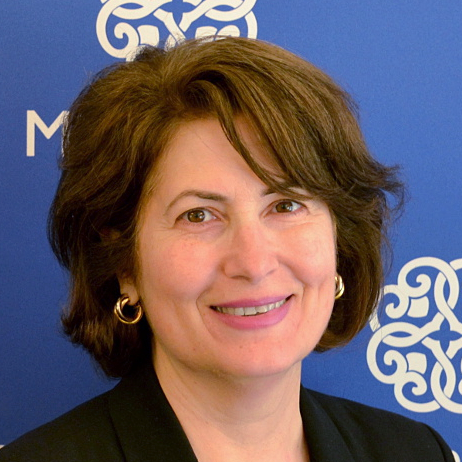
On April 7, the United States and Iraq will hold the next meeting of the U.S.-Iraq Strategic Dialogue via video teleconference. According to a tweet from the State Department-Near Eastern Affairs account, the discussions will cover “security and counterterrorism, economics and energy, political issues, and educational and cultural cooperation.” This list corresponds with the agendas of previous meetings of the dialogue held under the Trump administration. It is in U.S. interests to broaden discussions about the U.S.-Iraqi relationship beyond U.S. security assistance.
The meeting came at the request of the Iraqi side, partly to alleviate pressure on the government from Iran-aligned Iraqi militias calling for U.S. troops to leave the country in line with a vote by the Council of Representatives on Jan. 5, 2020. Attacks on U.S. convoys in Iraq have been taking place on a regular basis with two reported on March 28.
While the Middle East including Iraq is a low priority for the Biden administration, the upcoming session is an opportunity for the administration to present its Iraq policy. Iraqis hope it will be a departure from that of its predecessor, which viewed Iraq primarily through the lens of its Iran “maximum pressure” strategy. Members of the U.S. delegation to the talks, many of whom worked on the Iraq file during the Obama administration, know Iraq well and have struggled with the host of complex issues Iraq has faced since 2003. It is also an administration that is working to launch multilateral negotiations with Iran on its nuclear program and use those discussions as a platform to cover other issues of concern with respect to Iran, including its support for proxy militias in the Middle East, particularly in Iraq.
Tehran’s commitment to driving U.S. forces out of Iraq has not changed and is unlikely to change in the near future. To achieve this objective, Tehran has been using both violence and political tactics. In addition to Iran-aligned Iraqi militias attacking U.S. assets in Iraq, Tehran’s Iraqi political allies have been applying pressure on the Iraqi prime minister to follow up on the parliament’s January 2020 vote. They have also targeted and threatened some of his political allies. Not all Shi’a politicians support the Iranian-led push, while Sunni and Kurdish political factions oppose it. Political parties will be divided in their attitudes toward the dialogue as well. Some, including the speaker of the parliament and the Kurdistan Democratic Party, will endorse it publicly, others like Hikma, Nasr, and the Patriotic Union of Kurdistan will look favorably upon it without publicly embracing it. The Iran-aligned parliamentary bloc led by Fateh and their allies, including State of Law, will oppose the dialogue.
According to Iraqi sources, the prime minister seeks to achieve three objectives from the dialogue. First, he wants to secure support for his policies from the Biden administration. Such support improves his negotiating position with other Iraqi political factions and enhances his standing regionally as he seeks to strengthen relations with GCC neighbors, particularly Saudi Arabia, and his “New Mashreq” partners in Jordan and Egypt. Second, he wants to get a nominal reduction in the U.S. force presence to minimize pressure from Tehran and its Iraqi proxies for a withdrawal of U.S. forces. Third, he wants to secure U.S. assistance in the economic, health, and educational fields to mitigate some of the public health and economic challenges Iraq is currently facing. This U.S. assistance can improve his political capital ahead of the parliamentary elections in October.
Follow on Twitter: @rmslim
What is Iran seeking from an MOU with China?
Mohammad Hossein Ziya
Non-Resident Scholar
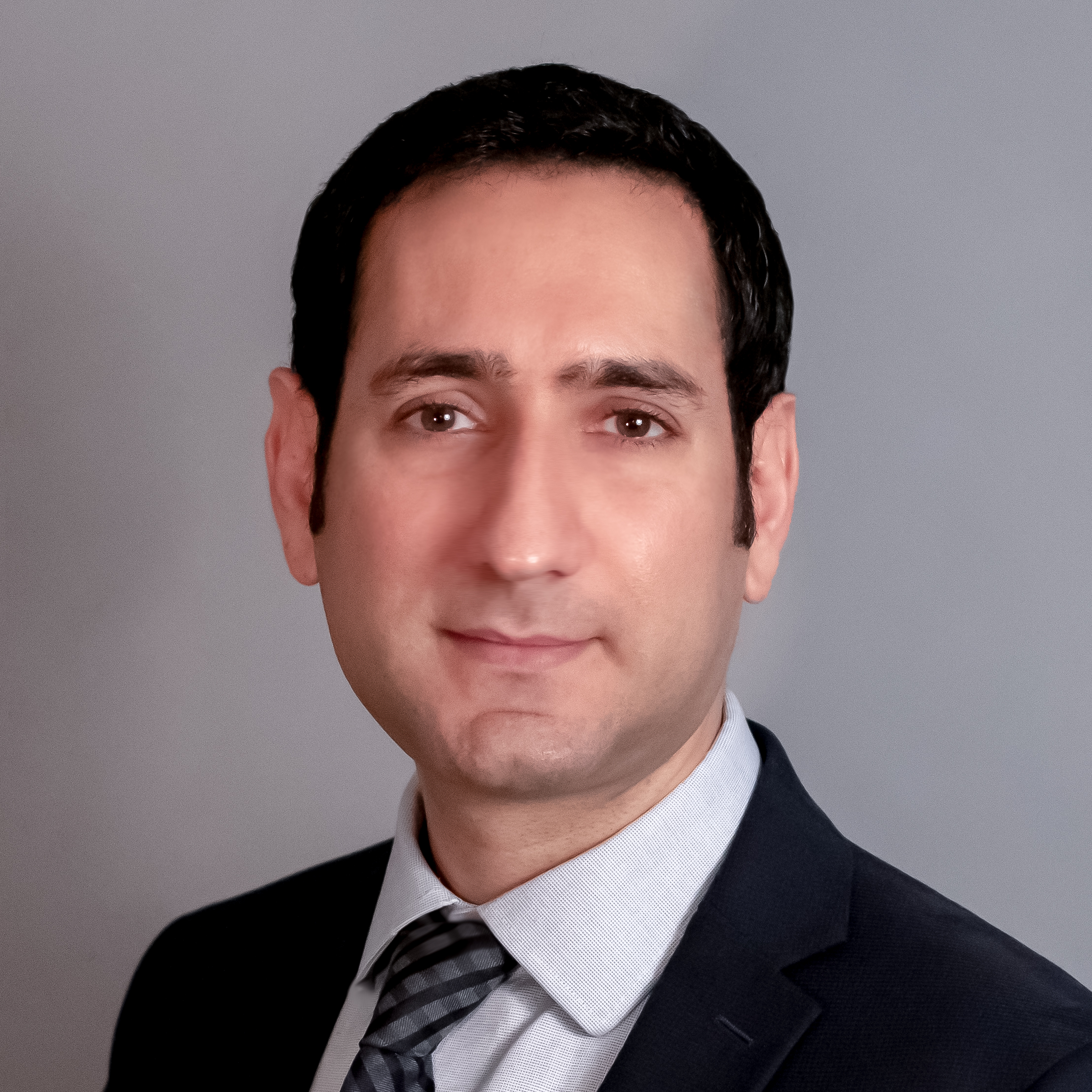
One of the main slogans of the Iranian Revolution of 1979 was “Neither Eastern nor Western.” The words are still emblazoned on the facade of the Iranian Ministry of Foreign Affairs building. The slogan means independence from both the Soviet Union and the United States, the two superpowers of the time. However, history has shown that in times of crisis, the Islamic Republic can maintain relations with whoever it needs, even Israel.
Two views dominate Iran's foreign policy, namely, the government, including President Hassan Rouhani, reformists, and moderates, and the system, including Supreme Leader Ayatollah Ali Khamenei, the Islamic Revolutionary Guard Corps (IRGC), and hard-liners.
The first group sought to reach an understanding with the West; the second did not and instead looked for alternatives. Former President Donald Trump's withdrawal from the Joint Comprehensive Plan of Action (JCPOA) boosted the power of the second group in public opinion. Nevertheless, with the advent of the Biden administration, hopes for a revival of the JCPOA and the lifting of sanctions were strengthened. However, several months into the Biden presidency, sanctions still remain in place.
In the business world, when one salesperson declines to sell you what you need, you will naturally look for another. The 25-year, $400 billion Iran-China memorandum of understanding, signed on March 27, is more of a warning message to the U.S. and countries in the region than a message of friendship to China. “Iran will not enter into negotiations again and beyond the same framework, and Iran has an alternative to sanctions,” the message says.
Nearly two weeks before the signing of the JCPOA in 2015, Chinese President Xi Jinping announced during a visit to Tehran that an agreement had been reached for a 25-year strategic partnership.
According to Sardar Rashid, commander of the IRGC's Khatam al-Anbiya central headquarters and a participant in the 1988 Iran-Iraq peace talks, “Prior to the talks, Mr. Velayati [the then-foreign minister] told Mr. Hassan Rouhani [the then-deputy commander-in-chief]: I wish al-Faw Peninsula was in our hands. In Geneva and during the negotiations, I realized how strong we can stand in the negotiations with the Iraqis if something is in our hands.” Iraq had retaken al-Faw Peninsula from Iran a few months before the war ended.
Although the Iran-China agreement comes at a time when Iran is facing an economic crisis due to sanctions and thus has no strong hand in negotiating the provisions, Iran can still get points from both sides amid the growing competition between the U.S. and China. Perhaps the signing of this agreement will bring the U.S. back to the JCPOA without preconditions.
The EU’s transactional approach to Turkey
Gönül Tol
Director of Turkey Program and Senior Fellow, Frontier Europe Initiative
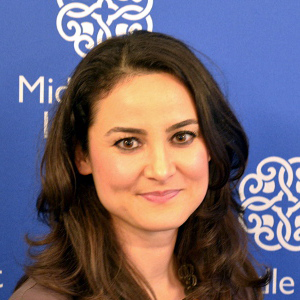
A prominent Turkish analyst, Kemal Can, nailed it on the head when he likened Turkish President Recep Tayyip Erdoğan’s approach to the Istanbul Convention, a Council of Europe treaty covering domestic violence and seeking to end legal impunity for perpetrators, to the way he wants to handle relations with the West. Erdoğan recently pulled out of the convention. Can argues that Erdoğan sees cases of domestic violence as a family matter that should be sorted out internally and outsiders have no business interfering. Erdoğan wants the West to view his onslaught on democracy and human rights in Turkey the same way: as a solely domestic matter. He thinks that what is happening inside Turkey is no one’s business and the West should instead focus on trade, economy, and the refugee issue. He got his wish.
If it was not apparent before, the EU’s transactionalism vis-à-vis Turkey was on full display last week during the European Council meeting of EU heads of state and government. The Council statement released after the meeting made clear where the EU’s priorities lie. A significant portion was devoted to the eastern Mediterranean and the refugee question, while Erdoğan’s assault on the rule of law and fundamental rights was only mildly criticized in passing. The EU praised Erdoğan for mending his ways by “de-escalating in the eastern Mediterranean,” referring to the Turkish president’s decision to halt energy drilling activities and resume bilateral talks between Turkey and Greece. EU leaders offered more refugee aid and pledged to prepare for a deeper customs union with Turkey. Expansion of the customs union, which would allow the unhindered flow of almost all goods and services to the world’s largest trading bloc, is critical for Erdoğan. The EU countries offered the plan as a sweetener in 2016 when Turkey agreed to host Syrian refugees as part of a migration deal. But several disagreements, including over Turkey’s poor human rights record, stalled the process. Five years later, Turkey is in a much worse place on the rule of law and fundamental rights, but the EU sees no problem with reviving the idea again to reward Turkey’s “good behavior” in the eastern Mediterranean. This time, there is no mention of Turkey’s EU membership process either. The EU’s transactionalism vis-à-vis Turkey is not only rewarding Erdoğan’s “good behavior” in the eastern Mediterranean, but also his bad behavior at home.
Follow on Twitter: @gonultol
Cross-border Syria aid in the spotlight at the UN Security Council
Charles Lister
Senior Fellow, Director of Syria and Countering Terrorism & Extremism programs
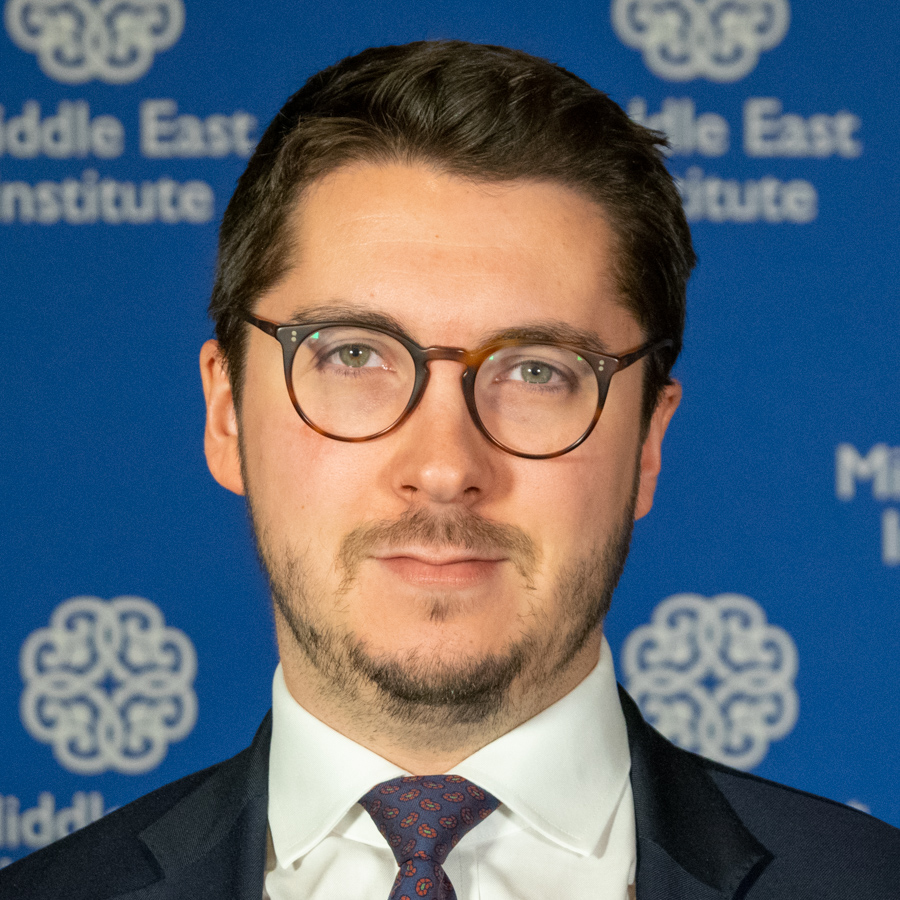
As the fifth annual EU-U.N. Syria Conference convened in Brussels seeking $10 billion in pledges for humanitarian aid, U.S. Secretary of State Antony Blinken took to the United Nations Security Council and assertively called for a re-broadening of cross-border aid access into northern Syria.
While the Brussels conference’s goal of raising money for aid efforts in Syria remains extremely important, its value depends almost entirely on the ability to distribute aid to all of those who need it. Consequently, Secretary Blinken’s decision to chair a Syria-focused session of the U.N. Security Council comes at a crucially important time, as the international community braces itself for a decisive vote in July, in which Russia will seek to veto all cross-border aid. Since January 2020, Russian diplomatic pressure has already reduced cross-border aid access from four crossings to one, with that final access point — Bab al-Hawa, into the northwest — the subject of the July vote. Shuttering Bab al-Hawa would leave more than 4.5 million civilians without crucially important aid in a move that is akin to putting the Syrian regime’s siege and starve strategy on steroids.
Responding to claims made by Russia and its Syrian and Iranian allies that the provision of cross-border aid represents a violation of Syria’s sovereignty, Secretary Blinken noted sharply that “sovereignty was never intended to ensure the right of a government to starve its people.” Indeed, as U.N. aid chief Mark Lowcock made clear, more than 75% of the 4.5 million civilians living in northwestern Syria depend entirely on U.N. cross-border aid and that despite Russia’s claim that cross-line aid from Damascus could replace cross-border assistance, “not a single truck” of such aid has been sent.
The international community cannot allow Russia and its Security Council ally China to end the U.N. cross-border aid mission to Syria. The unimpeded flow of humanitarian aid to all of those in need is a fundamental international principal, which if violated so blatantly could have serious and long-lasting global repercussions. And beyond being a profound matter of principle, the severing of cross-border aid would also risk catalyzing acute levels of heightened instability — including renewed hostilities, potentially unprecedented displacement, and a severe health crisis amid an already significant COVID outbreak.
Follow on Twitter: @Charles_Lister
The cost of not inviting Pakistan to Biden’s climate summit
Syed Mohammad Ali
Non-Resident Scholar
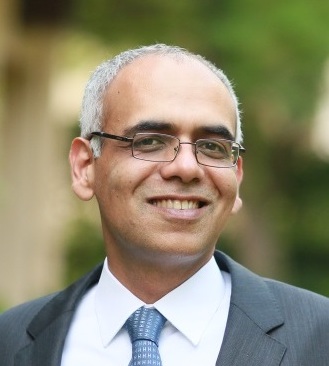
After the United States' resolve to address climate change suffered a nosedive under Donald Trump, President Joe Biden’s decision to invite 40 world leaders to a climate summit in late April is an encouraging sign.
That President Biden’s special adviser on climate change has a seat on the National Security Council is a recognition that climate change is a “threat multiplier,” with the potential to exacerbate existing global frictions. Climate change is especially a problem for populous countries that are locked in protracted conflicts, despite being co-dependent on shared natural resources. Nowhere is this threat more pronounced than in India and Pakistan, which share rivers fed by the increasingly stressed Himalayan glacier.
The U.S. played a pivotal role in brokering a longstanding water-sharing treaty between India and Pakistan, and it now has the potential to promote environmental diplomacy between the two countries to encourage them to cooperate rather than go to war over water.
Pakistan has recently been trying to broaden its relationship with the U.S. beyond the goal of facilitating the U.S. withdrawal from Afghanistan. Yet, the U.S. is wary of Pakistan’s growing relationship with China and it continues investing heavily in India to counterbalance China.
Inviting India and Bangladesh to its climate summit, and leaving Pakistan off the list of invitees, seems like a glaring act of omission for several reasons. Pakistan is the fifth-most-populous country in the world, and it is also among the top 10 countries affected by climate change, despite being a negligible emitter. Moreover, the current government in Pakistan, despite all its frailties, has tried to tackle the climate threat by launching a massive tree planting drive. Pakistan is also keen to green its energy portfolio, which remains heavily dependent on Chinese-financed coal-powered plants.
Including Pakistan in the climate summit would have offered the U.S. a chance to explore the possibility of cooperating with China to facilitate green energy investments within the China-Pakistan Economic Corridor, which is the flagship site for the Belt and Road Initiative. By keeping Pakistan off its invitation list, U.S. policy makers will also forego the opportunity to encourage needed environmental cooperation between the two nuclear-armed rivals of South Asia.
Photo: Satellite image (c) 2021 Maxar Technologies.
The Middle East Institute (MEI) is an independent, non-partisan, non-for-profit, educational organization. It does not engage in advocacy and its scholars’ opinions are their own. MEI welcomes financial donations, but retains sole editorial control over its work and its publications reflect only the authors’ views. For a listing of MEI donors, please click here.






